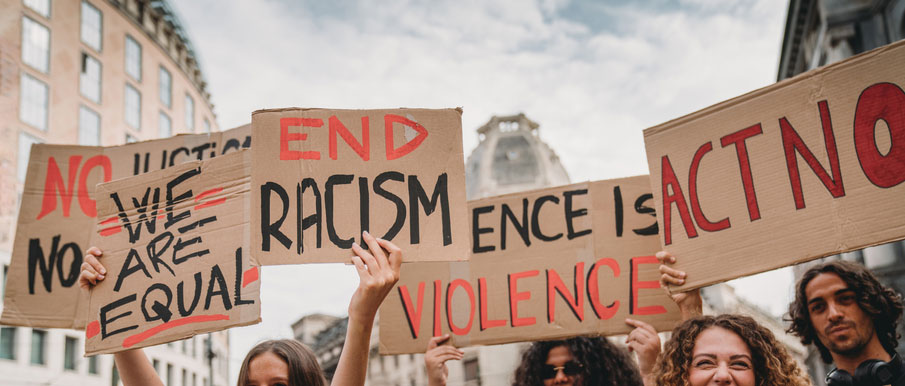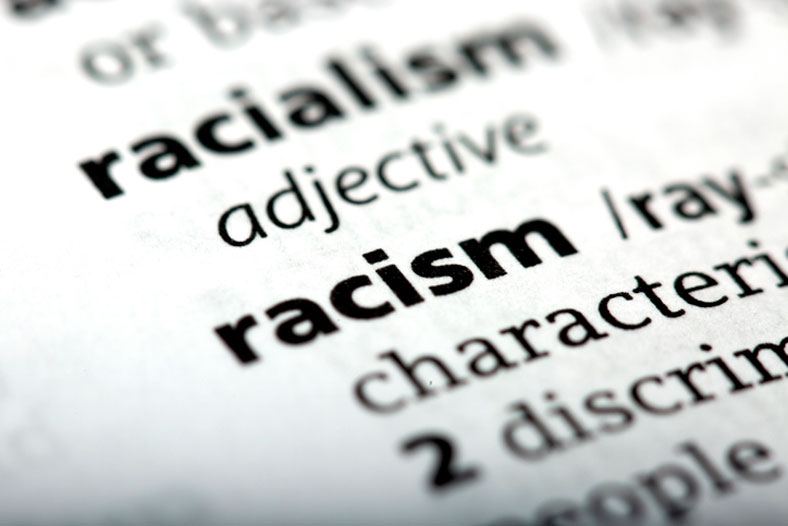Table of Contents
- Introduction: Social Work’s Legacy in Fighting Racism
- Defining Racism in Modern Context
- Types of Racism Social Workers Address
- Addressing Racism Through Professional Practice
- How Social Workers Combat Racism Today
- Educational Pathways for Anti-Racist Practice
- Resources and Next Steps
- Frequently Asked Questions
According to a 2021 Pew Research Center study, 50% of Americans believe that “a lot” needs to be done to combat racism, with an additional 34% agreeing that at least “a little” needs to be done. This widespread recognition underscores the critical need for trained professionals who can address racial inequality through both direct practice and systemic change.

Social work’s commitment to racial justice is codified in the National Association of Social Workers (NASW) Code of Ethics, which explicitly calls for challenging social injustice and pursuing social change on behalf of vulnerable and oppressed individuals. The Council on Social Work Education (CSWE) has also established anti-racism as a core competency in accredited Master of Social Work (MSW) programs across the nation.
Defining Racism in Modern Context
Understanding racism requires recognizing its multifaceted nature. The National Association of Social Workers defines racism as “the ideology or practice through demonstrated power or perceived superiority of one group over others by reasons of race, color, ethnicity, or cultural heritage.” This definition encompasses both individual prejudice and institutional practices that create and perpetuate inequality.
| Level of Racism | Definition | Social Work Response |
|---|---|---|
| Individual | Personal beliefs and actions that discriminate | Counseling, education, bias training |
| Interpersonal | Discrimination between individuals | Mediation, conflict resolution, support groups |
| Institutional | Policies and practices within organizations | Policy advocacy, organizational change |
| Systemic | Societal-level patterns of discrimination | Legislative advocacy, community organizing |

Types of Racism Social Workers Address
Social work practitioners encounter various forms of racism in their professional practice. Understanding these distinctions is essential for developing effective interventions and advocating for meaningful change.
Cultural Racism
Cultural racism manifests when individuals face discrimination based on their cultural practices, appearance, or traditions. This includes discrimination against natural hair styles in schools and workplaces, as well as against religious practices and cultural celebrations. Social workers in school social work settings frequently advocate for culturally inclusive policies that respect diverse expressions of identity.
Recent examples include the CROWN Act legislation, which prohibits discrimination based on natural hair texture and protective hairstyles. Social workers have been instrumental in advocating for this legislation at the state and federal levels, recognizing that hair discrimination disproportionately affects Black students and employees.
Systemic and Structural Racism
Systemic racism refers to the complex interaction of culture, policy, and institutions that holds in place the outcomes we see in our society. Social workers document and address how these systems create disparate outcomes in healthcare, education, the criminal justice system, and housing.
The practice of redlining, as defined by the Cornell Law School Legal Information Institute, represents “a discriminatory practice that consists of the systematic denial of services such as mortgages, insurance loans, and other financial services to residents of certain areas, based on their race or ethnicity.” Though officially outlawed by the Fair Housing Act of 1968, the effects of redlining continue to impact communities today through wealth gaps, educational disparities, and health inequalities.
Social workers in community development roles work to address these historical injustices through initiatives such as affordable housing advocacy, community investment programs, and financial literacy education targeted at historically marginalized communities.
Environmental Racism
Environmental racism describes the disproportionate impact of environmental hazards on people of color. Communities of color are more likely to live near toxic waste facilities, experience higher levels of air pollution, and lack access to clean water. Social workers collaborate with environmental justice organizations to advocate for equitable environmental policies and support communities affected by environmental issues.
Healthcare Disparities and Medical Racism
Medical social workers witness firsthand how racism affects health outcomes. Black maternal mortality rates are three times higher than those of white mothers, and COVID-19 disproportionately impacted communities of color. Social workers in healthcare settings advocate for culturally competent care, address implicit bias in medical treatment, and connect patients with resources to overcome systemic barriers to health.

Addressing Racism Through Professional Practice
Social workers employ evidence-based strategies to combat racism at multiple levels. These approaches are grounded in research, guided by ethical principles, and adapted to meet the specific needs of diverse communities.
Recognizing and Addressing Privilege
Professional social work education emphasizes critical self-reflection and examination of privilege. This process involves understanding how various identities intersect to create advantages or disadvantages. Key areas of privilege examination include:
- Race and ethnicity
- Gender identity and expression
- Sexual orientation
- Socioeconomic status
- Educational background
- Citizenship status
- Physical and mental ability
- Religious affiliation
The CSWE’s Educational Policy and Accreditation Standards require all accredited social work programs to include content on privilege, oppression, and diversity in their curricula. Students in Bachelor of Social Work (BSW) programs begin this self-examination early in their education, preparing them for culturally responsive practice.
Institutional Power Analysis and Intervention
Social workers are uniquely positioned to identify and address institutional racism through their work in various settings. They conduct organizational assessments, develop diversity and inclusion initiatives, and advocate for policy changes that promote equity and equality. This work requires an understanding of how power operates within institutions and the development of strategies to shift organizational culture.
For example, social workers in child welfare agencies work to address the overrepresentation of Black and Indigenous children in foster care systems. They implement family preservation programs, advocate for culturally appropriate services, and challenge policies that disproportionately impact families of color.
Cultural Humility and Competence
Moving beyond cultural competence, the profession now emphasizes cultural humility – a lifelong commitment to self-evaluation and self-critique. This approach recognizes that becoming truly culturally responsive requires ongoing learning and a willingness to acknowledge limitations in understanding others’ experiences.
Social workers practicing cultural humility engage in continuous education about different cultures, seek supervision and consultation when working with unfamiliar populations, and center clients’ expertise about their own experiences. This approach is particularly important in mental health social work, where cultural factors significantly influence how individuals understand and seek help for psychological distress.
Historical Context and Trauma-Informed Care
Understanding historical trauma is essential for addressing contemporary racism. Social workers recognize how events like slavery, genocide of Indigenous peoples, Japanese internment, and other historical injustices continue to impact communities today. This historical awareness informs trauma-informed approaches that acknowledge both individual and collective trauma.
The profession’s contribution to the Civil Rights Act of 1964 exemplifies how social workers have historically used their practice experience to inform policy. Social workers documented the effects of discrimination on individuals and communities, providing crucial evidence that supported legislative change.
Accountability and Ethical Practice
The NASW Code of Ethics requires social workers to prevent and eliminate discrimination. This ethical mandate extends beyond individual practice to include challenging discriminatory practices within organizations and the profession itself. Social workers must be willing to confront racism when they encounter it, whether from colleagues, institutions, or systems.

How Social Workers Combat Racism Today
Contemporary social work practice employs multiple strategies to address racism and promote racial justice. These evidence-based approaches span from individual interventions to systemic advocacy.
Direct Practice Interventions
Clinical social workers provide culturally responsive mental health services that acknowledge racism’s psychological impact. They offer:
- Racial trauma therapy: Specialized treatment addressing the mental health effects of racism
- Support groups: Safe spaces for individuals to process experiences of discrimination
- Family therapy: Helping families navigate conversations about race and cope with discrimination
- Crisis intervention: Immediate support following racist incidents or hate crimes
Community Organizing and Advocacy
Social workers lead grassroots organizing efforts that empower communities to advocate for themselves. These initiatives include:
- Coalition building: Bringing together diverse stakeholders to address systemic issues
- Policy advocacy: Drafting and promoting legislation that advances racial equity
- Community education: Facilitating workshops on recognizing and responding to racism
- Youth empowerment: Developing leadership programs for young people of color
Research and Documentation
Social work researchers contribute vital data on the impacts of racism and effective interventions. Recent research priorities include:
- Documenting disparities in child welfare, criminal justice, and healthcare systems
- Evaluating anti-racist interventions and programs
- Developing culturally validated assessment tools
- Studying protective factors in communities of color
Policy and Legislative Work
Social workers holding LMSW or LCSW licenses often serve as expert witnesses, policy advisors, and legislative advocates. Current policy priorities include:
| Policy Area | Social Work Advocacy Focus | Current Initiatives |
|---|---|---|
| Criminal Justice | Reducing mass incarceration | Restorative justice programs, bail reform |
| Education | Eliminating school-to-prison pipeline | Trauma-informed schools, culturally responsive curricula |
| Housing | Addressing residential segregation | Fair housing enforcement, affordable housing development |
| Healthcare | Eliminating health disparities | Community health worker programs, implicit bias training |
| Child Welfare | Reducing racial disproportionality | Family preservation, kinship care support |
Educational Pathways for Anti-Racist Practice
Social work education at all levels incorporates anti-racist content and competencies. The CSWE’s 2022 Educational Policy and Accreditation Standards explicitly require programs to prepare students to “demonstrate anti-racist and anti-oppressive social work practice.”
Undergraduate Education
BSW programs introduce students to concepts of power, privilege, and oppression. Core courses include:
- Human Behavior and the Social Environment (with emphasis on cultural factors)
- Social Welfare Policy (examining racist policies and their impacts)
- Diversity and Social Justice
- Research Methods (including culturally responsive research approaches)
Field education placements provide opportunities to apply anti-racist principles in practice settings. Students might work in organizations serving diverse populations, participate in advocacy campaigns, or assist with community organizing efforts.
Graduate Education
MSW programs offer advanced coursework and specializations focused on racial justice. Many programs now offer concentrations in areas such as:
- Race and Social Justice
- Africana Social Work
- Latinx Social Work
- Indigenous Social Work Practice
- Immigration and Refugee Services
The 84 online CSWE-accredited MSW programs have expanded access to social work education, allowing more diverse students to enter the profession. These programs maintain the same anti-racist curriculum standards as campus-based programs while offering flexibility for working professionals.
Continuing Education and Specialization
Licensed social workers must complete continuing education to maintain their credentials. Many states now require or encourage training on cultural competence and implicit bias. Professional development opportunities include:
- Undoing Racism workshops by the People’s Institute for Survival and Beyond
- Racial Equity Institute training
- NASW specialty certifications in areas like school social work with equity focus
- Advanced certificates in racial trauma treatment
Resources and Next Steps
For those inspired to pursue social work as a pathway to fighting racism and promoting social justice, numerous resources and opportunities are available:
Professional Organizations
- National Association of Social Workers (NASW): The largest membership organization of professional social workers, offering resources, advocacy, and professional development
- National Association of Black Social Workers (NABSW): Dedicated to enhancing the quality of life and empowering people of African ancestry
- Council on Social Work Education (CSWE): The accrediting body for social work education programs
- Association of Latino/a/x Social Workers: Supporting Latinx social workers and communities
Educational Resources
- Anti-Racist Social Work Practice textbooks and curricula
- Racial Equity Tools: Free online resources for understanding and addressing racism
- CSWE Center for Diversity and Social & Economic Justice: Resources for educators and students
- NASW Standards and Indicators for Cultural Competence: Practice guidelines for social workers
Career Pathways
Social workers committed to racial justice find meaningful careers in various settings. The social work career guide provides comprehensive information about specializations and career trajectories. High-impact career paths include:
- Civil rights organizations and advocacy groups
- Community development corporations
- Policy think tanks and research institutes
- School systems implementing equity initiatives
- Healthcare organizations addressing disparities
- Criminal justice reform organizations
- Immigrant and refugee services
Frequently Asked Questions
What is the social worker’s role in addressing racism?
Social workers address racism through multiple approaches: providing direct services to individuals affected by discrimination, advocating for policy changes, conducting research on racial disparities, and organizing communities for collective action. The profession’s ethical code mandates challenging social injustice, making anti-racist practice a professional obligation rather than an option.
How do MSW programs teach anti-racist practice?
CSWE-accredited MSW programs integrate anti-racist content throughout the curriculum. Students take dedicated courses on diversity and oppression, examine racist policies in policy classes, learn culturally responsive practice methods, and complete field placements in diverse communities. Programs also emphasize self-reflection, requiring students to examine their own biases and develop cultural humility.
What careers in social work focus on racial justice?
Many social work careers center on racial justice, including: civil rights advocates, diversity and inclusion specialists, community organizers, policy analysts focusing on equity, researchers studying disparities, clinical social workers specializing in racial trauma, and program directors for organizations serving communities of color. These roles exist across sectors including nonprofits, government agencies, healthcare systems, and educational institutions.
Do I need an MSW to work on racial justice issues?
While a BSW provides foundational knowledge for anti-racist practice, an MSW offers advanced training and opens more career opportunities, particularly in clinical practice, policy, and leadership roles. Many positions specifically focused on racial equity and social justice prefer or require an MSW. Additionally, clinical licensure, which enables independent practice and therapy provision, requires a master’s degree.
How can social workers address their own biases?
Addressing personal bias is an ongoing process requiring continuous self-reflection, education, and accountability. Social workers engage in regular supervision, participate in anti-racism training, seek feedback from colleagues and clients, read widely about different cultures and experiences, and participate in their own therapy when needed. Many also join accountability groups or work with mentors from different backgrounds.
Taking Action: Your Next Steps
The fight against racism requires dedicated professionals equipped with knowledge, skills, and ethical grounding. If you’re inspired to join this critical work, social work education provides the foundation for meaningful impact. Whether you’re considering your first degree or advancing your career, the social work profession offers pathways to create lasting change.
Explore accredited social work programs to find the right educational path for your goals. Learn about admission requirements, specializations, and career outcomes. The journey toward becoming an anti-racist social work practitioner begins with education and continues through lifelong learning and commitment to justice.
Social work’s legacy in fighting racism continues today through the dedication of practitioners, educators, researchers, and students committed to equality. As our society grapples with persistent racial inequities, the need for skilled social workers has never been greater. Your voice, perspective, and commitment can contribute to building a more just and equitable future for all communities.














